Go beyond the basics of supporting your immune system with these lesser talked about, yet equally important daily practices to stay well this winter and all year-round.
The winter months get touted as cold and flu season. But maybe we should just call it “less sunlight, more sugar and increased stress season?” It’s the influx of holiday get-togethers and end of the year stress tied up with more sugar, less sunlight and fresh air that leaves you feeling worn down and overwhelmed. Your immune system has taken a hit. Then just as soon as you’re ready to get back to your productive and healthy routines, sickness always seems to strike.
If you’re like me, you pay extra attention to your daily routines this time of year to help avoid all the sicknesses going around. You’re prioritizing all the tried-and-true immune supporting practices like eating a wide variety of whole foods, limiting sugar and processed food, minimizing alcohol or avoiding it all together, and washing your hands.
But really, these are the basics. Yes, all important ways to support your body and stay well during the winter season, and beyond. But if you really want to support your immune health and optimize your wellness year-round, consider adding in these lesser talked about, yet equally important daily practices.
Get Outside
It can be harder to get outside in the winter, especially if you’re living anywhere that isn’t blessed with a 60F winter day. – looking at you LA. But just a little reminder, there’s no such thing as bad weather, only inadequate clothing.
Getting outside in the fresh air daily, even in the chilly temps does wonders for our serotonin, melatonin, and dopamine. All of these impact our sleep, mood, energy, and hormones. It also helps support your immune health by helping oxygenate your cells, lowering exposure to germs and indoor pollutants, supporting vitamin D levels and reducing stress. Truly so many benefits.
While getting outside anytime during the day is beneficial. Prioritizing morning and evening light can support your circadian rhythm. This in turn supports sleep which we know is crucial for your immune health, feeling energized, minimizing cravings and so much more.
-
- Aim for 10 minutes of morning sun exposure upon waking to help circadian rhythm
- Avoid sunglasses in the morning for adequate light exposure
- Take a midday walk to re-energize and get away from your desk or out of the house
- Take your workout outside
- Get your kids outside as much as possible to play
Add In Bee Propolis
If you’re not familiar with propolis, this will soon become a product you’ll always have on hand. Propolis is considered the bodyguard of the beehive. Bees use it to line the walls of their hives to keep the germs out. When harvested, we can use it to support our immune systems, soothe scratchy throats, and combat free radical damage in the body. These functional properties come from the 300+ beneficial compounds including vitamins B, C & D, Zinc, and several antioxidants.
We’ve had Beekeeper’s Naturals Propolis Throat Spray in our medicine cabinet for years. It’s my go to when I start to feel like I’m coming down with something and the first thing I reach for when my kids show signs of a cold. Which has been since Charlie’s immune system needs all the extra support with those school germs.
How to use propolis to support your body year-round:
-
- DAILY – throat spray to proactively support your immune system
- COLDS – up the dose to 2-4x per day
- SORE THROAT / COUGH – as needed, 2-4x per day
- TRAVEL – as an extra defense when traveling, 2x per day
As mentioned, I give this to Charlie as soon as he’s coming down with something and will add it to Henry’s line up as soon as he turns two.
I have both the Kids and Adult versions of Beekeeper’s Naturals Propolis Throat Spray on hand. The only difference between them is that the Adult has slightly more propolis (85mg per serving vs. 77mg per serving) and the Kids has buckwheat honey for flavor and added antioxidants. That being said, both are safe for kids ages 2+ and adults so I reach for either in a pinch.
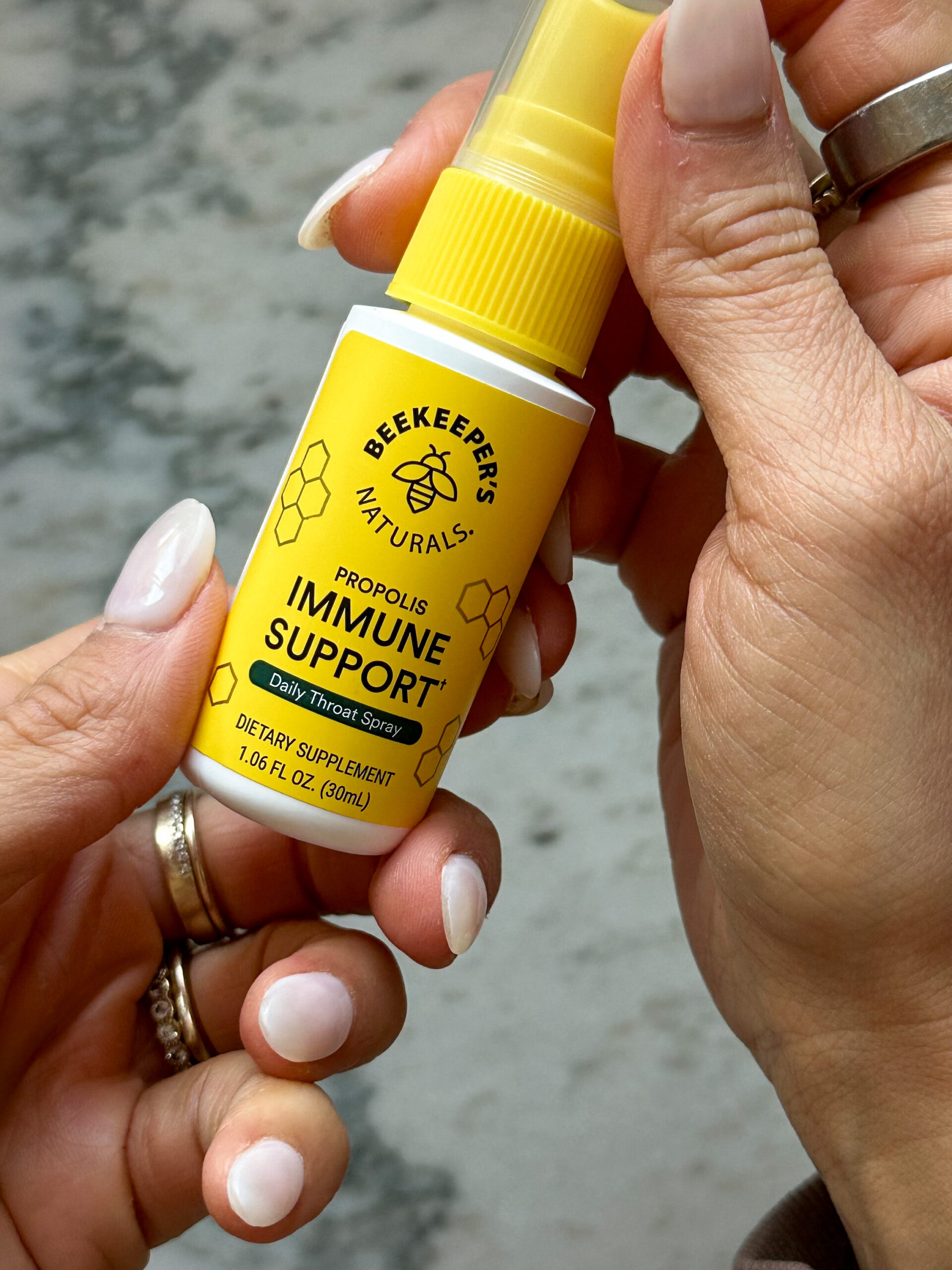
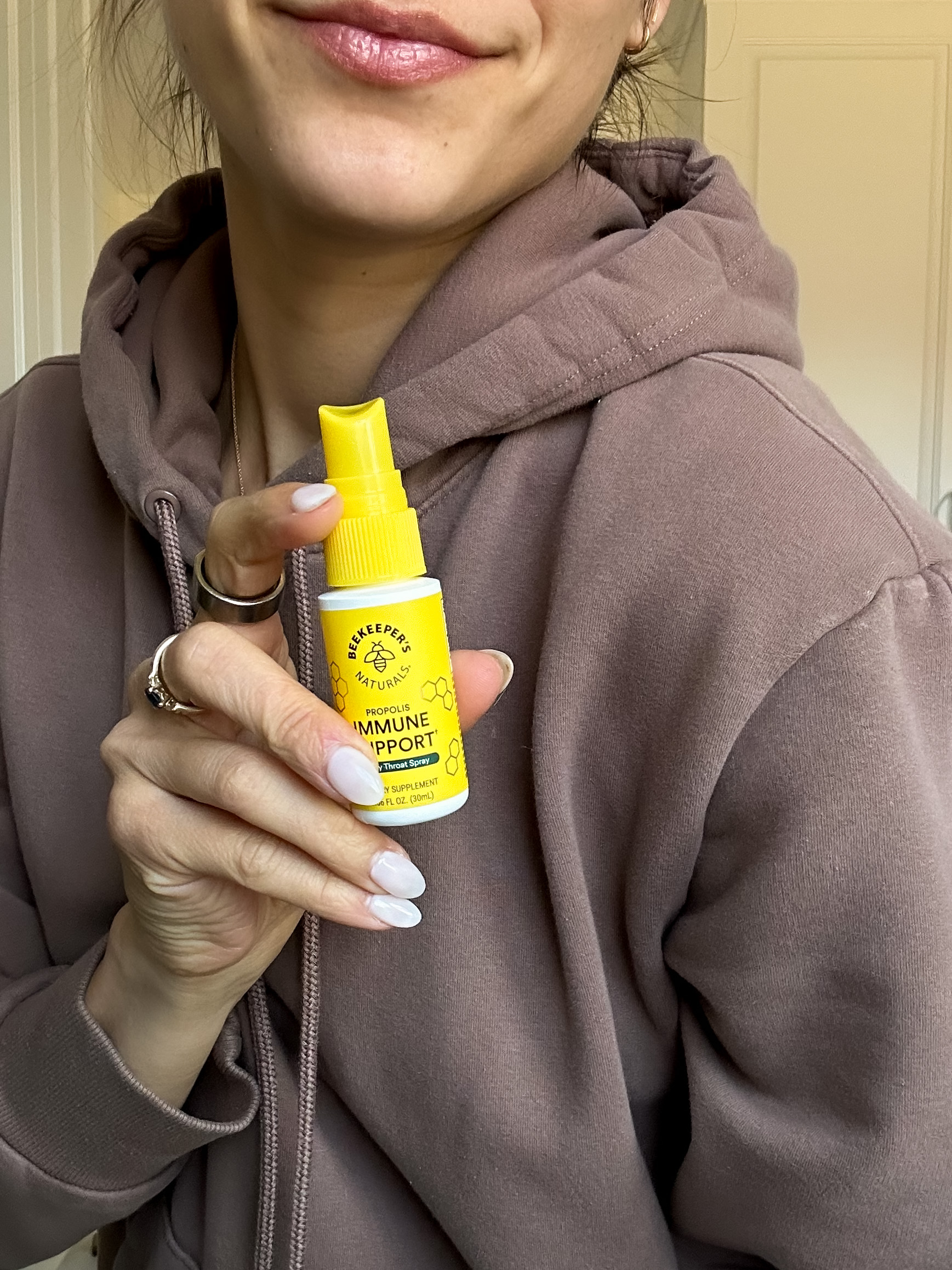
Lymphatic Support
Your lymphatic system plays a crucial role in filtering and draining toxins from your body. However, unlike your circulatory system that has a built in pump, your lymphatic system needs support to keep it moving.
When lymph isn’t moving properly it becomes stagnant, which could lead to a poor immune response, acne, puffiness, and dry, dull skin. Even if you aren’t experiencing puffiness or signs of congestion, anyone can benefit from incorporating daily habits to support your lymph to help ensure this fluid doesn’t get backed up. These include:
-
- Dry brushing, gua sha, facial cupping
- Cold exposure, cold showers, facial ice baths
- Lymphatic drainage massage
- Rebounding, jumping
- Walking, yoga, stretching
- Diaphragmatic breathing
- Castor oil packs
- Hydrate!!!
One key area of keeping the lymph flowing is hydration. Which brings us to the next key area.
Cellular Hydration
When I talk about hydration I mean proper hydration. Hydration at a cellular level. If you’re drinking water and constantly having to pee, you’re not hydrating efficiently. This means that you’re not only drinking the water but actually absorbing it. This happens when you add trace minerals and electrolytes to your water.
Adding minerals and electrolytes to your water is especially important when using filtered water (which is something I recommend everyone be doing!). Natural water sources often contain essential minerals like calcium, magnesium, potassium, and sodium and other trace minerals. All things we need to maintain proper electrolyte balance in the body. When you filter the water to remove harmful contaminants (like endocrine disruptors, heavy metals, fluoride, etc) the minerals are also stripped out.
To ensure you’re properly hydrating consider:
-
- Adding an electrolyte packet to your morning water
- Remineralize your filtered water with trace mineral drops
- Add a pinch of sea salt to each glass
- Consume coconut water (aka nature’s electrolyte drink)
- Making a homemade electrolyte drink with coconut water, lemon and honey
Prioritize Gut Health
Gut health and immunity go hand-in-hand. In fact, over 70% of our immune cells are found in the gut. Needless to say, prioritizing gut health is an important piece for staying well year-round.
But what does prioritizing gut health even mean? To break it down simply, it really means supporting the quality of our gut microbiome and the ratio of good to bad bacteria. While much of this is dependent on eating nutrient dense foods, gut health goes beyond eating well. Stress levels, quality of sleep, environmental toxins, and so much more play into our overall gut health. That being said, I recommend incorporating these habits daily.
-
- Add fermented foods – these natural probiotics help support the balance of good bacteria in the gut – yogurt, kefir, sauerkraut, kimchi, miso etc.
- Load up on fiber and antioxidants – fiber-rich foods like fruits, vegetables, and whole grains are also good sources of vitamins, minerals and antioxidants which nourish beneficial gut bacteria.
- Practice mindful eating – proper chewing breaks down food into smaller particles, making it easier for your gut to digest and absorb nutrients.
- Eliminate artificial sweeteners – research shows that artificial sweeteners may negatively impact gut bacteria. Opt for natural sweeteners like honey or maple syrup instead (while still keeping sugar to a minimum).
- Support the gut lining – bone broth, collagen, gelatin, colostrum, L-glutamine, aloe and certain herbs like marshmallow root.
While I encourage you to commit to the basics to support your body, try taking it a step further to fully optimize your wellbeing. By getting outside in the fresh air, adding in bee propolis, lymphatic system support, properly hydrating and maintaining your gut health, you’re giving your body and immune system the extra support it needs to thrive this winter and beyond.

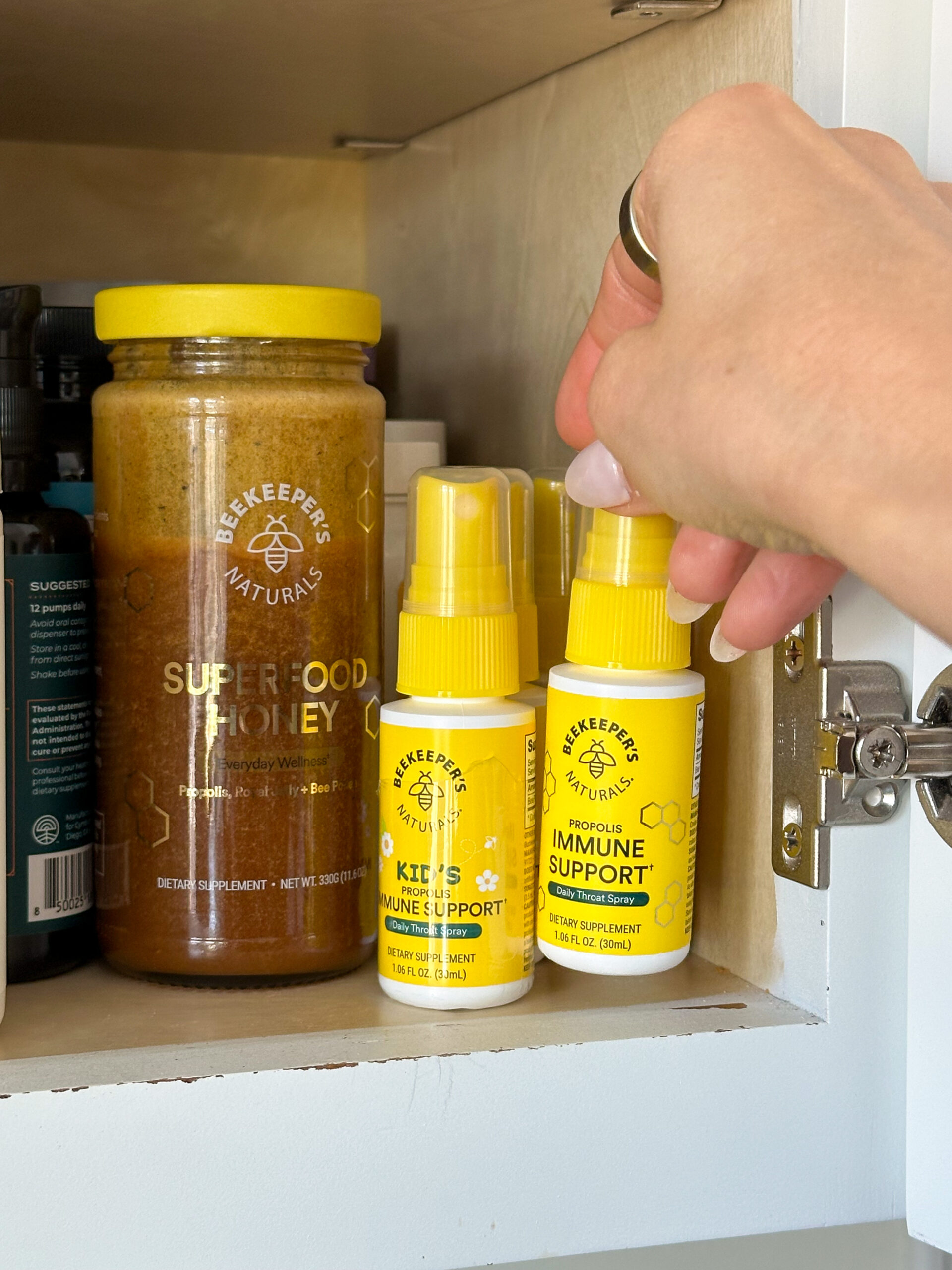
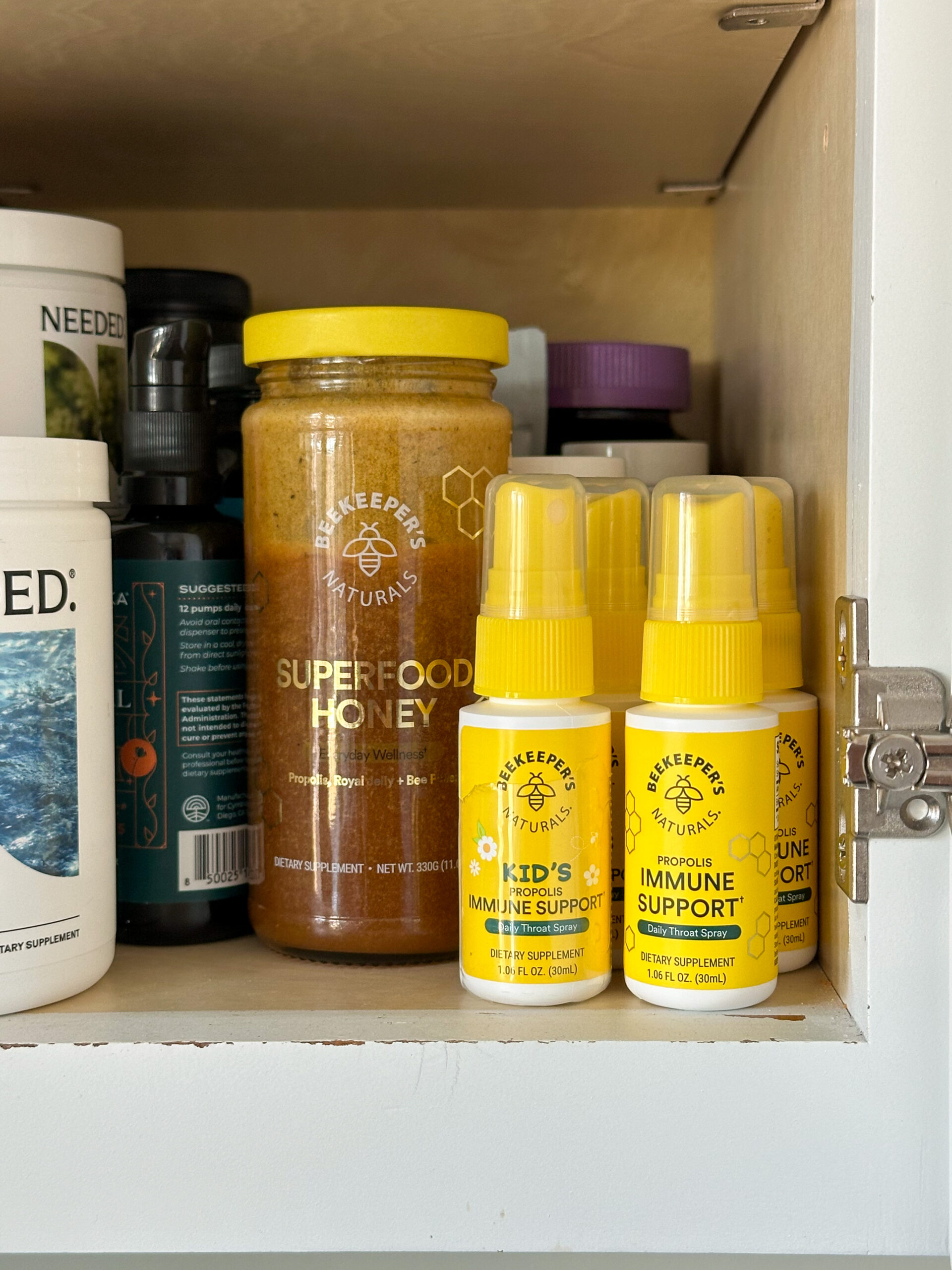

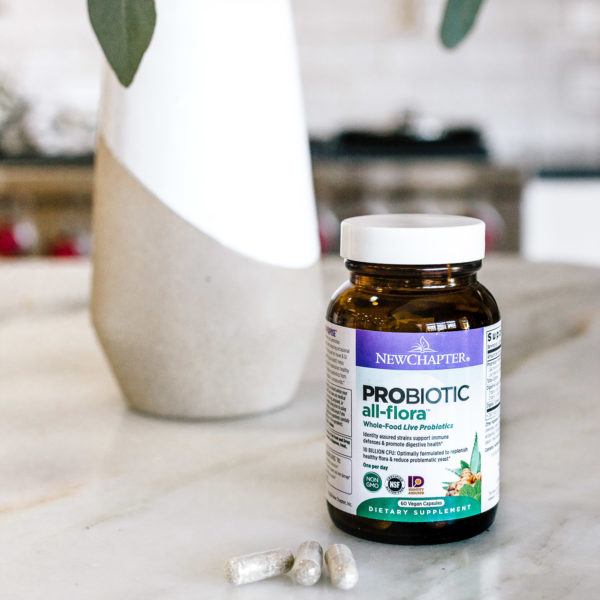

Comments (0)